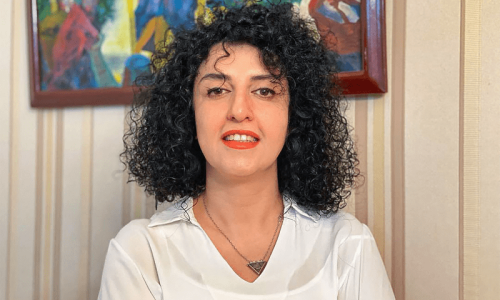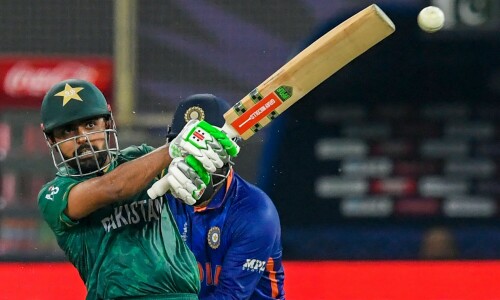
“What? You don’t have a mobile phone of your own?” Alina’s friends asked her in astonishment.
“You are right, I don’t have a mobile phone as my parents don’t allow me to have one. But I will surely ask them for it. It’s the need of the hour after all,” Alina replied.
Soon after, it was Alina’s birthday and Alina got many gifts. She thanked everyone for the presents, but on opening them Alina wasn’t at all happy because she didn’t get what she wanted the most — a mobile phone.
She then asked her parents to give her a mobile phone as her birthday present. Her parents loved their daughter a lot, so they finally gave in to her wish. When they gave her the mobile phone, they made her promise that she would only use it for necessary purpose and not use it excessively.
However, Alina couldn’t keep her promise for long, as the temptation to use her new device was too hard to control. Soon she couldn’t just put it down. She was her online all the time, scrolling, chatting with friends or playing video games.
Her parents were very concerned about Alina’s attention being consumed by the gadget and how her studies and everyday activities were ignored as a result.. They tried to caution her, sometimes lovingly and sometimes sternly, but she never paid heed to what they said. Soon she was her lagging behind her classmates in studies.
One day, his dad called her and said, “Look my daughter, we have great expectations from you. We want to see you successful. Throughout history, all great people worked hard and didn’t let distractions deviate them from their path to achieve great heights. You see, these gadgets aren’t good for us if we use them excessively. Mobile phone addiction will devastate your academic life and you will regret it. It’s better to study now, as a stitch in time saves nine.”
Alina nodded to her father as if she understood, but his words fell on deaf ears. Then she went to her room and opened her social media apps.
Alina started sobbing now. The teachers tried to make her stop crying and asked her to attempt the paper. But how could she write when the words on the question paper were all blurry to her?
Alina was too addicted to follow what she had been told. And it wasn’t that she didn’t care about her studies. She worried about failure quite a bit, but she didn’t feel like studying because there were too many fun things to do on her phone. Doing her homework or assignments felt like a form of punishment. She found her books terribly boring, having never developed any real interest in them.
And one of her biggest nightmares was mathematics. She couldn’t muster up the courage to open her math book, as if something unpleasant might jump out and bite her.
After a few months, Alina began to notice her eyes aching more often, but she brushed it off. The aching soon became routine and, before long, her vision started to blur while she was chatting with her friends. At times, her eyes grew so watery that it became hard to keep her gaze steady.
One day, she mentioned it to her mother, who immediately suspected her eyesight was weakening and advised her to rest her eyes and put the phone away. Her mother didn’t realise the extent of Alina’s struggle, assuming she would improve if she took a break from screens. But things were far more troubling than either of them had imagined.
Alina went to her room, thinking about the exam her friends had been chatting about. The exam was going to take place the next day. Would she be able to pass? Little did she know there was something far more concerning on the horizon.
The next day Alina took her geometry box and exam enrolment slip and sat in the car. Her mother drove her to the school and wished her best of luck for her paper. Alina entered the hall and sat in the front row, according to her roll number. The teacher passed the answer sheet and Alina draw margin lines on the sheet. Her eyes still had a blurry vision. The teacher passed on the question paper.
To Alina’s shock, she couldn’t see the questions properly. There just seemed to be a blurry page.
Alina felt so hopeless that she started sobbing now. The teachers tried to make her stop crying and asked her to attempt the paper. But how could she write when the words on the question paper were all blurry to her? What a miserable time it was for her. She decided to leave her paper blank and went early out of the hall.
She walked into the house, hugged her mother and told her everything. Her mother reassured her, saying, “Don’t worry; everything will be fine once we see the doctor.”
Mother was very calm and patient with Alina because she knew her daughter had learnt her lesson, and what she needed right now was assurance and support.
At the doctor’s clinic, Alina admitted that she used her phone almost all the time — even when she was supposed to be sleeping. The doctor ran some tests and prescribed eyeglasses, vitamins and eye drops.
Alina felt ashamed, but now she understood how important it is to keep one’s screen time in check. She promised her parents that she would limit her time on the phone and will also warn her friends about the danger of gadgets and watching screens too much.
Published in Dawn, Young World, November 30th, 2024













































Dear visitor, the comments section is undergoing an overhaul and will return soon.